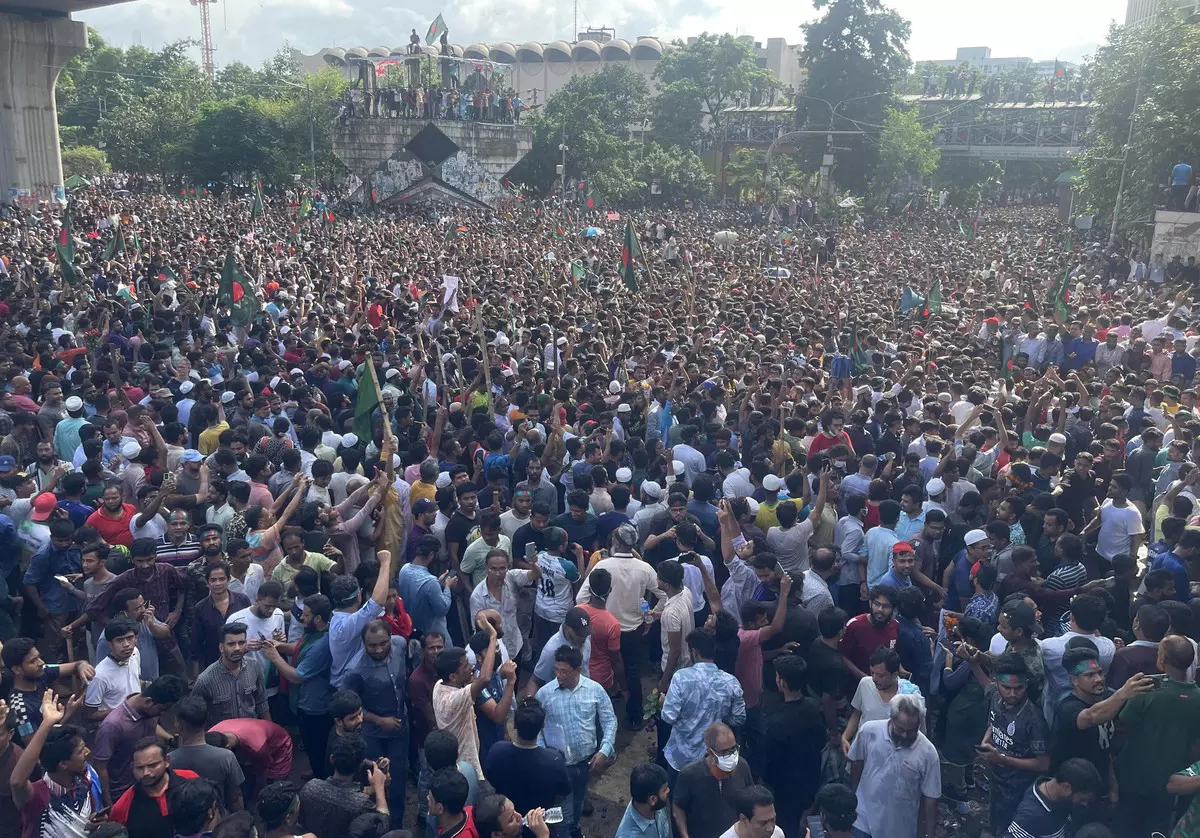AA Edit | Autocratic Bangla PM forced to flee in face of public anger

A flight out of a troubled Bangladesh, rocked by student unrest owing to a major quota in government jobs for the progeny of freedom fighters, has been the response of Sheikh Hasina, the beleaguered autocratic Prime Minister of Bangladesh. Instead of adopting a conciliatory approach to addressing the issue that had much to do with the future of youth in a developing country and sitting down to negotiate with student leaders, the authoritarian PM asked the police to put down “anarchist forces” with an iron hand.
The future has assumed several shades of grey as the Army stepped into the immediate breach in what is a troubling scenario for a country that was just making its way out to economic growth. Sheikh Hasina’s initial response was to contemptuously dub the protesters as ‘Razakars, a derogatory term used for those who collaborated with the East Pakistan regime to throttle the democratic ambitions of Bangladeshis and made the situation considerably worse.
In scenes straight out of Colombo during the public protests about a grave economic situation in Sri Lanka that saw the Rajapaksas flee to temporary havens, thousands of Bangladeshi protesters stormed the PM’s residence in Dhaka after having publicised their Monday march. On the day after nearly 100 people, including policemen, had died in the worst clashes between the protesters and the law and order forces, a discontented crowd of students and youth has decided they had had enough of a leader who only paid lip service to meeting them and sorting out things.
Not an exemplary democrat at the best of times, Sheikh Hasina was guilty of squeezing the Opposition out and virtually forcing them into boycotting the last elections that validated the continuance of her 15-year rule. Such authoritarianism cannot be exhibited without risks in an open society like Bangladesh. She may have been expecting the Army brass to back her, but they gave her hardly any time to pack before putting her on a military plane to India.
In the month of July of extreme shows of public disaffection, Sheikh Hasina may have had the time to attempt the conciliatory approach, put the jobs quota on hold and speak to protesters instead of relying on the brute force of the riot police. Shutting the Internet, banning assemblies of people, declaring curfews and empowering the police to not only fire tear gas were the processes through which the government tried to staunch the burgeoning protests, buttressed by Opposition party loyalists who smelt an opportunity.
Far more democratic ways may have been open to her to find a solution that would first restore public order, but she reacted exactly like an autocrat would. It was humiliating in the end that she had to flee with her sister fearing personal safety. As a friend of India, perhaps the most reliable of those in the region, she was supported in her flight to safety, and she landed in India.
What shape the geopolitics of the region takes even as a power struggle in Dhaka is certain to follow her departure is anybody’s guess now. A democracy, though only notional thanks to Sheikh Hasina’s machinations against the Opposition, may be in peril now that the Army brass has had to take charge, and the generals are likely to put in place an interim regime when power has landed in their lap.
| |
Next Story
